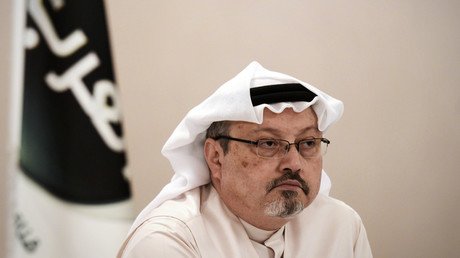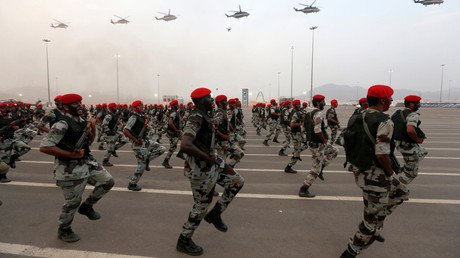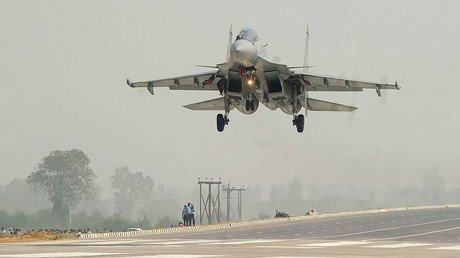Chop-chop: Saudis may cut billions in military contracts & petrodollar in response to US sanctions
US penalties against Saudi Arabia over the alleged murder of Washington Post journalist Jamal Khashoggi may never be implemented. But just in case, the oil-rich kingdom has threatened to hit back using several effective weapons.
Washington pledged ‘severe punishment’ if the Saudis ordered the killing of Khashoggi, a Saudi-born journalist, who disappeared nearly two weeks ago shortly after he entered the kingdom’s consulate in Istanbul. Turkey’s government claims they have evidence the journalist was tortured, killed and dismembered in the building.
RT talked to international oil economist Dr Mamdouh G. Salameh, who also serves as a consultant for the World Bank on oil and energy, and a technical expert with the United Nations Industrial Development Organization, to explore what action Riyadh may take in retaliation to possible penalties.
“The US should not underestimate Saudi Arabia’s ability to retaliate against any punishment in the future. Remember there’s a lesson in history dating back to 1973, which shows Saudi Arabia never hesitated to retaliate,” Dr Salameh said, referring to an oil embargo on the US, which inflicted heavy damage on the American economy.
Back then, a group of Middle East states refused oil sales to the United States, causing petrol shortages and skyrocketing prices for fuel.
The economist stressed that Donald Trump’s sanctions threat will remain only an empty threat.
“If he imposes any severe sanctions on Saudi Arabia, which now I doubt very much, the kingdom could easily cap its oil production significantly,” Dr Salameh said, highlighting that the step would inflict heavy casualties on the Republicans ahead of the mid-term elections.
Moreover, Saudi Arabia might refuse to compensate any possible loss by Iranian oil exports resulting from US oil sanctions, according to the analyst.
“Saudi Arabia is the pillar of the global oil markets, and consequently, any developments in Saudi or outside Saudi could affect oil prices,” he told RT.
Dr Salameh said that depolarization of the Saudi economy is going to happen anyway, whether there is punishment over the missing reporter or not.
“Saudi Arabia exports around one million barrels to China, and China is demanding that Saudi suppliers accept the petro-yuan experiment for oil exports,” he said. “Saudi Arabia wants to maintain its market share in China, which is currently the world’s biggest importer.
“If Saudi Arabia accepts payment in petro-yuan, it will irritate Americans, but there would be a compromise,” Dr Salameh said, adding that the kingdom could use euros for oil exports to the European Union, yuan for exports to China, and the dollar for supplies to the US.
US won’t impose economic sanctions against Saudis to protect its arms sales to kingdom – analystshttps://t.co/lgURMUN0frpic.twitter.com/KAhRHyEUOU
— RT (@RT_com) October 16, 2018
“Naturally, the winner will be the petro-yuan, as 75 percent of Saudi Arabia exports go to China anyway with increases expected in the future,” the analyst said.
According to the economist, Saudi Arabia could easily drop American weapons contracts and start buying Russian weapons, which are more sophisticated and cheaper.
“When President Trump threatened sanctions against Saudi Arabia, he excluded the arms sales to the kingdom estimated between $100 billion and $200 billion a year,” Dr Salameh said.
He added that Riyadh could also start selling US Treasury securities, but it would be just a symbolic signal that the kingdom is not happy with the policies implemented by the White House, as the Saudis are not the biggest holder of US bonds, especially compared to China.
For more stories on economy & finance visit RT's business section















